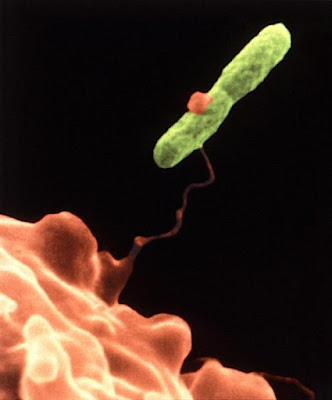Why Does Evolution Complicate Matters?
To hear proponents of goo-to-gunslinger evolution talk, evolution is a random, unguided process. They also present it as something that has a kind of will and decision-making ability; a Gnostic-type demiurge, if you will. Evolution is also a sort of irresistible force — except when it isn't. The inconsistencies of the paradigm help illustrate the weakness of the paradigm.
Some Darwinoids got themselves all agitated when a multicellular fossils was found and dated way, way back yonder. Dubious dating methods aside, there are still some basic questions that evolutionists are unable to answer: how and why would unicellular organisms have any need of evolving? These organisms are getting along right well, and even if you give evolutionists the existences of unicellular organisms (including abiogenesis to start the whole life thing going), they cannot explain how organisms moved upward. Sometimes they'll refer to evolution as "life", but that's just playing with words. Evolutionists give us a whole heap of guesses and call it science, but there's really no explanation. Of course, those of us who believe what the Creator said in his Word know that this was all part of the plan.
 |
| Amoeba lassoes a bacterium for chow. Image credit: CDC / Dr. Barry S. Fields, who are not endorsing these here contents |
The recent report of a 1.5-billion-year-old fossil has brought attention once again to the alleged evolution of multicellular systems. This 30-centimeter fossil is offered as evidence that multicellular life evolved a billion years before the so-called Cambrian Explosion. Pyritic structures have also been suggested as showing that the first multicellular life may have evolved even earlier.To read the rest, click on "Could Life Have Evolved Multicellular Systems?"
Yet the key question—the “elephant in the room”—is why would multicellular systems have ever evolved? This question has long puzzled evolutionists. Single-celled (unicellular) organisms, such as bacteria, are the most versatile and adaptable organisms on earth. They are often described as Darwinian engines. Why would there be an evolutionary advantage to “evolve” multicellular systems (with more complex biological apparatus, less adaptability, and slower reproduction)?